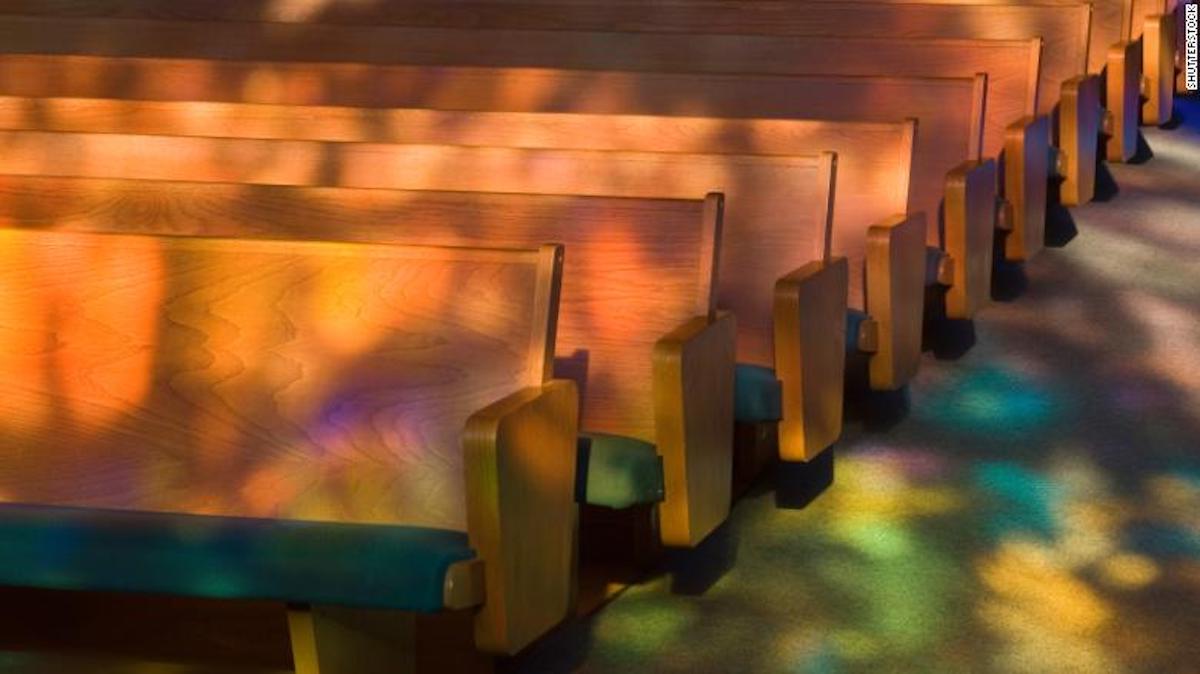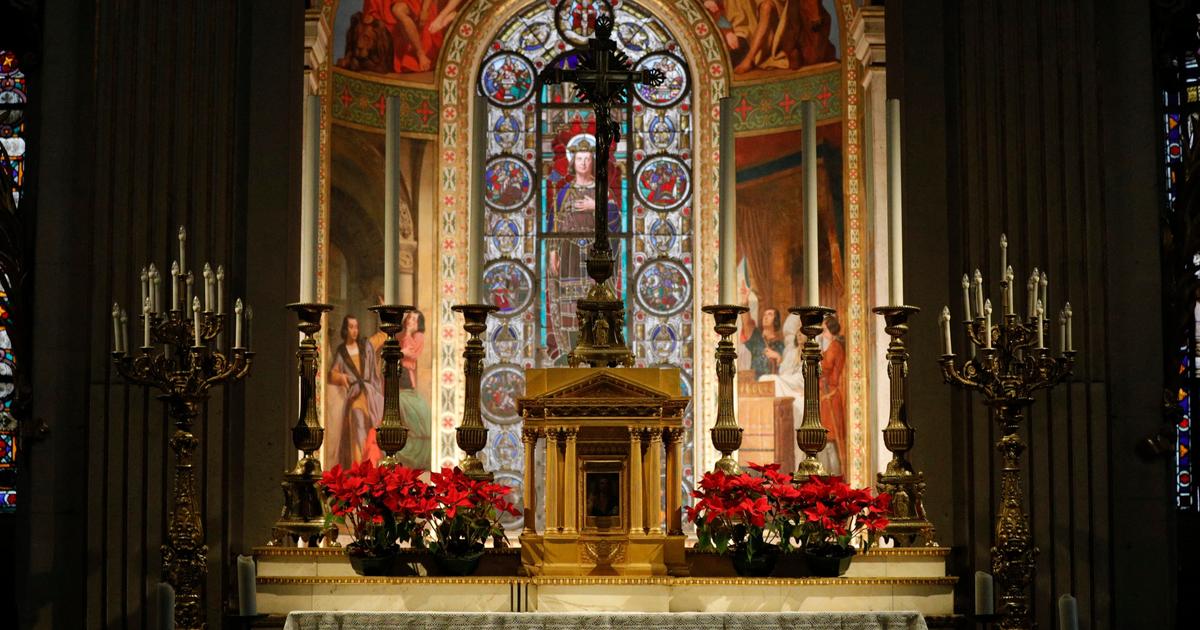This is how the most important carnival in the USA is lived 1:18
Editor's Note:
Tess Taylor is the author of the poetry collections "Work & Days," "The Forage House," and more recently, "Rift Zone" and "Last West: Roadsongs for Dorothea Lange."
The opinions expressed in this column are yours alone.
Read more opinion pieces on CNN.
(CNN) -
This week marks the beginning of Lent, the liturgical season of fasting and prayer in Christianity leading up to Easter.
Lent will be quiet this year, for the second year in a row: There are no Mardi Gras parades, not even in New Orleans, no pancake dinners in church.
In my parish there has been a very low-key email call for Lenten meditations, and an equally quiet list of links to virtual Lenten services that we could attend.
For someone who loves to spend Mardi Gras hanging around my church rec room with a glass of wine and a plate of jambalaya, the season feels quiet.
It's strange trying to focus on the significance of this time, when it is customary to give up or part with something that matters, in a year already plagued with losses.
For people like me who like to observe Lent, a question arises: In a year in which we have already renounced the world as we knew it, for almost a year, how do we observe this season?
What if we just don't want to give up on more things?
advertising
I'll stop here with a confession.
As I sit on a bench, I am not always a particularly devout Christian.
In the old days, I traveled a lot and during the pandemic, with its chaos, our family left the virtual church months ago.
- What is Lent and on what date is it celebrated?
This is how the most important carnival in the USA is lived 1:18
But there are many gateways to the holy, and wherever I've been, I've always loved the spring fast offering of Lent.
Over the years, I have filled the weeks of Lent with dream practices (writing in my journal every day) or social (trying, every day, to call a friend).
In one way or another, I have practiced Lent for decades, even when I haven't practiced much more.
Even when I was in my 20s, when I joked about attending the "Church of Brunch" and the "Church of the Holy Comforter" (that is, the bed) I still loved the ritual of being more intentional in spring, of seeing the trees begin to bloom and tulips emerge from the thaw.
However, the way I have practiced religion has changed: In later years, after returning to church, I used Lent to give up wheat, alcohol, or sugar, enjoying abstinence, perhaps also hoping that my Lenten practice would make me (ahem) a little slimmer.
When I started raising children, Lent sometimes got away from me, feeling like just another act of conscience, something I would simply fail in an already busy life.
"This year I renounce Lent for Lent," I once told my priest.
Lent, in data
Message of Pope Francis for Lent in 2020 0:44
The evolution of Lent
My vision of Lent evolved again a few years ago, when I was living in Northern Ireland and visiting Carrickfergus Castle, on the north side of Belfast Lough.
The castle, which dates back to the 12th century, has a history as part of England's efforts to colonize Ireland, and is one of the places where the evil King John from "Robin Hood" ended up, actually ended badly.
It is a large stone castle, with a narrow tower studded with thin arrow slots so that the guards could send down showers of arrows to defend themselves from marauders at sea.
All of that was something to behold, but what caught my attention, on that cold February day, was a description of liturgical life in the castle around 1250.
One plaque described how after the great feast and hunting seasons (hunt in the fall and freeze meat for the cold winter), the community came together to feast once more before entering Lent, when they would essentially live off oats and peas for six weeks until spring came.
Their late-winter party was a stone soup affair — inviting the city to bring out the best things that had been racking up one last hurray before, as a community, times got harder.
Looking at the rainy landscape of Ireland, I understood the gesture: There was not much to harvest.
The community fasted in part because the land was at rest.
Suddenly, I understood Lent differently.
Now I saw this season and its sacrifices rooted in ecological and community principles, a practice carried out by and for the community so that people can care for each other and the earth in a time of scarcity.
Thinking back to this fast, as a practice undertaken in stewardship of others and of the earth, changed my way of thinking about how I wanted to live the Quarantine.
Suddenly, it became much less important to think about how successful I was or not, whether I was giving up sugar, and that it was more important to spend time reflecting on how the practices in which my life is rooted - work or art or faith or activities daily - they act (even mysteriously) with and for the community around me.
Behavior changes in Lent
Thinking in this way informed my actions: Last year, during Lent, my practice was simply to drive less and ride my bike as much as possible.
Lent this year has another bittersweet resonance.
On Mardi Gras (the Tuesday before Lent), last year, we were at church in Berkeley, having our last days feast, eating pancakes with friends.
It was (without our knowing it) also our last communal dinner, our last family night in the previous world.
I still remember that we squeezed in the middle of the small crowd gathered in the church, eating and laughing together.
We took turns watching everyone's kids climb onto the church's outdoor play structure, and my daughter knitted around us, amassing an absurd amount of necklaces.
The virus was in the news, but (we thought) it was not around us yet.
He was supposed to leave at dawn for a whirlwind trip to New York City.
That night, on the way home, my husband, who rarely objects, asked me to cancel.
"There is a storm brewing, Tess, with this virus, and it would be very bad to get sick right now."
I, who have spent years charging hard against the world, heard your request.
I canceled my taxi at four the next morning and called my editor to say that I would reschedule as soon as I could.
Those were the last famous words.
I haven't been to New York since.
The next day, a few known cases of coronavirus exposure appeared in our children's schools, and then the schools closed.
That was the beginning of shutting us in and out.
For us, that first day of Lent marked the beginning of this year that changed our lives.
What can we offer this Lent?
This brings me back to the question: After this incredibly difficult year, in a season of so much loss and deprivation, what can we offer this quiet second Lent?
How can we make decisions that allow us to slow down and take root in whatever world is here now, and prepare for whatever world comes later?
We've already given up many things: I think of my parents six blocks away, missing their grandchildren, our relationship muted for a year of carefully avoiding each other.
I think about losing my great aunt, in North Carolina, to covid, and how we have not been able to get together as a family to bury my grandmother, who was born in 1918 and passed away last January.
We have abandoned libraries, bars, airplanes, and airports;
schools and nurseries and indoor spaces;
we have given up the comforting mammalian sensation of seeing our mouths.
Some of us have even given up on greeting each other when we pass by on the street, as if somehow silence keeps us safe.
It's easy to feel like it's too long and too difficult, as if giving up something else this year is beyond what anyone should try.
That's when I come back to the idea that occurred to me in the Irish castle facing the North Sea.
I remind myself that all of this giving up, throughout the heartbreakingly challenging year, had at its root some hope of keeping each other well, of helping us all get through this difficult season together.
I remember the signs they put up in our neighborhood: "Wearing your mask is an act of love."
I am once again determined to slow down and reweave that love into my daily understanding: as I keep my distance, put on my mask and register for vaccination, I do it for the community in which I live.
I have not yet decided what the Lenten practice will be this year.
I'm still thinking about it.
I am considering volunteering each week at a local community garden.
I miss cuddling and drinking wine with friends in a big, rickety church building.
I miss joking with the cafe guy at the train station and laughing with friends in crowded bars.
I'm so hungry for the world.
This year, there is an end in sight, however distant it may be.
Maybe not at Easter, maybe not in summer, but we will find our way back to each other.
For now, I try to focus on love.
I keep my eyes on the tulips: I watch them move, day by day, towards their bloom.
coronavirus lent






/cloudfront-eu-central-1.images.arcpublishing.com/prisa/MCNLBUB3XJGQVPA6OLDVNVCFOA.jpg)

